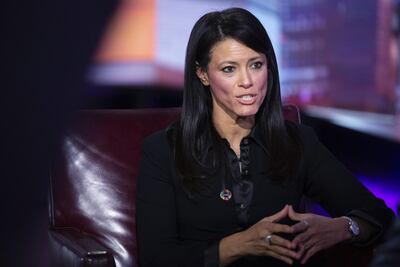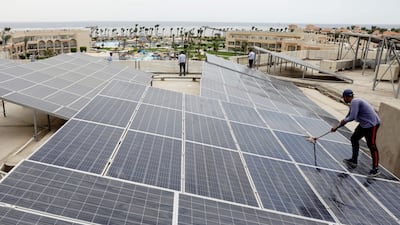The 2021 UN Climate Change Conference, Cop26, took place in the British city of Glasgow, surrounded by the rolling, green and well-watered Scottish countryside. At the time, the autumn weather was surprisingly good for a country famous for its rain, perhaps ominous of the great changes on the horizon when it comes to global climate. This year, Scotland had a hot summer and much of the UK suffered droughts.
Cop27 will happen in a very different geography. Egypt is the host, and the event will begin in two months' time. In the run-up, the country is today preparing by convening a gathering in Cairo of African ministers of finance, economy and environment. Senior government representatives, such as US special presidential envoy John Kerry, are in attendance, as well as international organisations and banks – parties that will play a vital role in funding and managing responses to the climate crisis.
The topics that are up for discussion are crucial. But so is the location. Egypt has made clear that it wants this instalment of the conference to be for Africa, in addition to the wider goal of moving “from pledges to implementation”.
At home, Egypt is demonstrating how to implement these promises. Speaking to The National, Egypt's Minister of International Co-operation Rania Al Mashat said “climate action has to be nationally motivated”. In her mind, Egypt is making sure “climate and development come hand in hand”.

Her case is strong. The country unveiled its “NWFE” programme, which stands for the nexus for water, food and energy. It involves pursuing ideas to safeguard these vital areas in the years ahead, which are particularly stressed in Africa and the Middle East.
An important part of getting such projects off the ground is securing funding. NWFE is a good template for doing so. The government is hoping to raise almost $15 billion to fund the project by November 2023. It is making progress. The European Bank of Reconstruction and Development is leading the energy strand, the African Development Bank on water and the International Fund for Agricultural Development food.
A focus on African issues will also raise awareness of today's unacceptable climate injustices. The continent is responsible for about 2 to 3 per cent of global emissions, and yet, according to the UN Environmental Programme, it is "disproportionately the most vulnerable region in the world".
Keeping focus on these issues will be important as even the richest countries grapple with severe economic troubles. If Cop26 was about keeping focus on ambitious targets during a pandemic, this year's is about doing so in a time of war, food and energy shortage and what seems to be a more general weakening of global diplomacy.
In a speech at the beginning of the forum, the president of Cop27 and Egypt's foreign minister, Sameh Shoukry, stressed that his country will address gaps in the implementation of the climate promises the world made in Paris in 2015.
Egypt is well-placed to be an advocate for climate issues in Africa, but, spanning the two regions, it is also in a good position to build momentum for the Middle East in the run-up to Cop28, which will be held in the Emirates next year. Mena is another region that is going to feel, indeed already does, a changing climate earliest and most severely. The next two years, then, are shaping up to be crucial for their futures.


